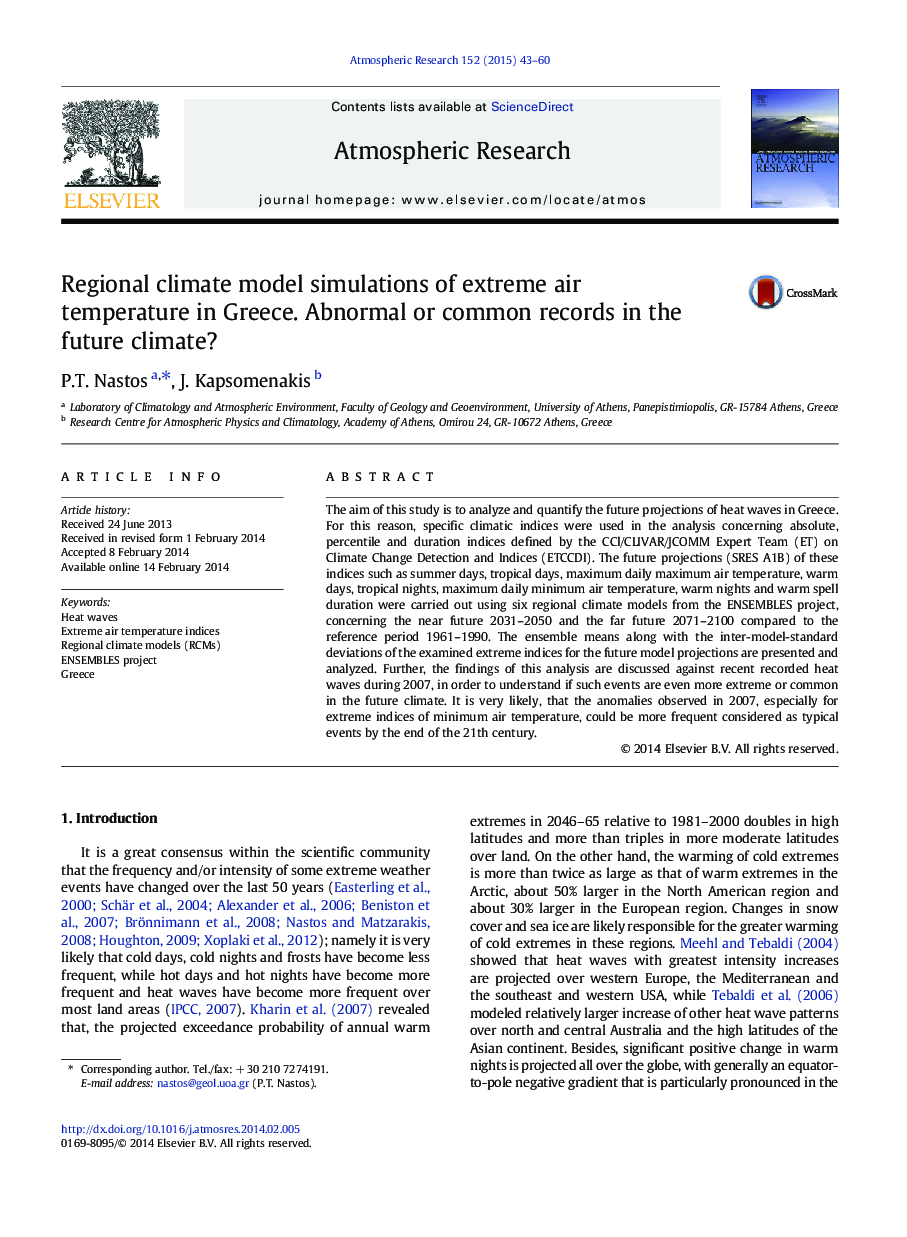| Article ID | Journal | Published Year | Pages | File Type |
|---|---|---|---|---|
| 4449830 | Atmospheric Research | 2015 | 18 Pages |
•Simulations of extreme air temperature in Greece by regional climate models from the ENSEMBLES project.•Widespread significant changes in air temperature extremes, especially in the far future (2071-2100) under SRES A1B.•A remarkable contrast of air temperature extremes over land against sea.•The extreme hot summer 2007 in Greece is likely to be common/cold by the middle /end of the 21st century.
The aim of this study is to analyze and quantify the future projections of heat waves in Greece. For this reason, specific climatic indices were used in the analysis concerning absolute, percentile and duration indices defined by the CCl/CLIVAR/JCOMM Expert Team (ET) on Climate Change Detection and Indices (ETCCDI). The future projections (SRES A1B) of these indices such as summer days, tropical days, maximum daily maximum air temperature, warm days, tropical nights, maximum daily minimum air temperature, warm nights and warm spell duration were carried out using six regional climate models from the ENSEMBLES project, concerning the near future 2031–2050 and the far future 2071–2100 compared to the reference period 1961–1990. The ensemble means along with the inter-model-standard deviations of the examined extreme indices for the future model projections are presented and analyzed. Further, the findings of this analysis are discussed against recent recorded heat waves during 2007, in order to understand if such events are even more extreme or common in the future climate. It is very likely, that the anomalies observed in 2007, especially for extreme indices of minimum air temperature, could be more frequent considered as typical events by the end of the 21th century.
